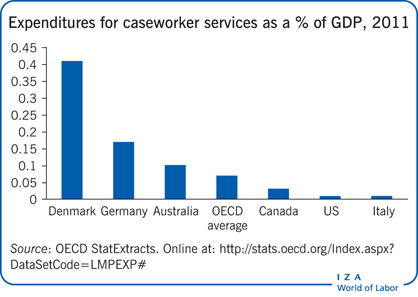Elevator pitch
Organisation for Economic Co-operation and Development countries spend, on average, an equivalent of 0.4% of their gross domestic product on active and passive labor market policies. This is a non-negligible sum, especially in times of strained government budgets. Meetings with case workers—who can provide advice and information on what jobs to look for, and how to search, and give moral support, as well as monitor search intensity—are a simple and effective option for policymakers to help the unemployed find work.

Key findings
Pros
A case-worker-based approach is a simple and less costly policy option for increasing job-finding rates.
Meetings can be scaled up or down to accommodate the upturns and downturns of the business cycle.
Meetings with case workers appear to be associated with longer-term job stability for the reemployed.
Because there are no lock-in effects, meetings can be an effective tool early in the unemployment period, when a worker’s chances of being rehired are at their highest.
Cons
Meetings tend to help only the most employable workers (whose skills and abilities are demanded by the local labor market), while not helping less desirable workers.
If there are fewer jobs than job-seekers, meetings may help some workers get the available jobs at the expense of other seekers.
Economists do not fully understand how and why meetings are beneficial to individual job seekers.